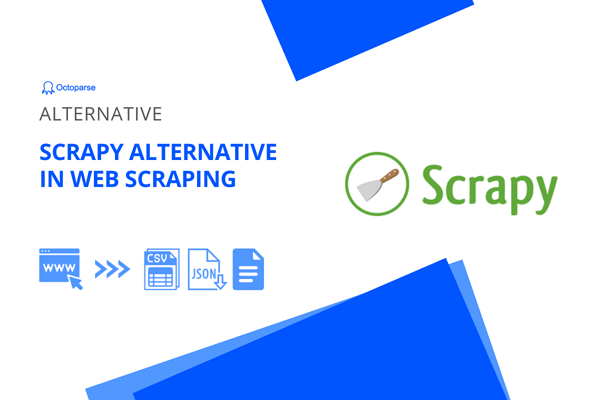
The Evolving Landscape of Web Data Extraction
In the dynamic world of web scraping, developers and data professionals constantly seek powerful, efficient tools that transcend traditional extraction methods. Beautiful Soup, while revolutionary, represents just one approach in an increasingly sophisticated technological ecosystem.
Understanding Web Scraping‘s Technological Evolution
Web scraping has transformed from a niche technical skill to a critical data acquisition strategy across industries. What began as simple HTML parsing has now become a complex, nuanced discipline requiring advanced technological sophistication.
The Beautiful Soup Paradigm: Strengths and Limitations
Beautiful Soup emerged as a game-changing Python library, simplifying HTML and XML parsing for developers worldwide. Its intuitive syntax and flexible parsing capabilities made web data extraction accessible to programmers of varying skill levels.
Technical Constraints of Beautiful Soup
Despite its popularity, Beautiful Soup presents significant limitations:
- Limited request handling capabilities
- Dependency on additional libraries
- Manual parsing requirements
- Performance challenges with large-scale projects
- Minimal built-in concurrency support
Comprehensive Alternatives Ecosystem
Scrapy: The Professional Web Crawling Framework
Scrapy represents a quantum leap in web scraping technology. Unlike Beautiful Soup‘s parsing-focused approach, Scrapy offers a complete web crawling and extraction framework designed for enterprise-grade data collection.
Technical Architecture
Scrapy‘s architecture provides developers with unprecedented control over web scraping workflows. Its asynchronous request handling enables simultaneous data extraction from multiple sources, dramatically improving extraction efficiency.
Key Features:
- Robust middleware support
- Advanced pipeline processing
- Comprehensive extension ecosystem
- High-performance crawling capabilities
Selenium: Browser Automation Powerhouse
When web scraping requires dynamic content interaction, Selenium emerges as a superior alternative. Its browser automation capabilities allow developers to simulate complex user interactions and extract JavaScript-rendered content.
Use Cases and Implementation
Selenium excels in scenarios requiring:
- Complex website navigation
- Form submissions
- Dynamic content rendering
- Browser state management
Playwright: Next-Generation Web Automation
Developed by Microsoft, Playwright represents the cutting edge of web scraping and browser automation technologies. Its multi-browser support and advanced interaction mechanisms set new standards for web data extraction.
Distinctive Capabilities
- Cross-browser compatibility
- Native mobile browser emulation
- Advanced network interception
- Sophisticated waiting strategies
HTTPX: Modern HTTP Client Revolution
HTTPX introduces a modern approach to HTTP requests, offering developers a flexible, high-performance alternative to traditional libraries.
Technical Advantages
- Async/sync request handling
- Type hinting support
- HTTP/2 compatibility
- Lightweight implementation
No-Code Web Scraping Solutions
Octoparse: Democratizing Data Extraction
For professionals without extensive coding expertise, Octoparse provides a user-friendly web scraping solution that eliminates technical barriers.
Workflow Simplification
- URL input
- Automatic data detection
- Visual configuration
- Flexible execution options
- Multi-format data export
ParseHub: Enterprise-Grade Visual Scraping
ParseHub offers advanced scraping capabilities through an intuitive visual interface, making complex data extraction accessible to non-technical users.
Advanced Scraping Techniques and Strategies
Proxy Management and Anti-Detection
Successful web scraping requires sophisticated strategies to bypass potential blocking mechanisms:
- Residential proxy networks
- IP rotation techniques
- Geographic diversity implementation
- Request fingerprint obfuscation
Ethical Considerations in Web Scraping
Responsible data extraction demands adherence to ethical guidelines:
- Respect website terms of service
- Implement rate limiting
- Obtain necessary permissions
- Prioritize data privacy
Performance Benchmarking and Comparative Analysis
Comprehensive Tool Evaluation Matrix
| Tool | Speed | Complexity | Scalability | Learning Curve |
|---|---|---|---|---|
| Beautiful Soup | Low | Low | Limited | Easy |
| Scrapy | High | High | Excellent | Moderate |
| Selenium | Medium | High | Good | Challenging |
| Playwright | High | Moderate | Excellent | Moderate |
Future Trends in Web Scraping Technology
Emerging Technological Frontiers
- AI-Enhanced Extraction Algorithms
- Machine Learning Adaptive Parsing
- Decentralized Scraping Networks
- Enhanced Privacy Protocols
- Automated Data Validation Mechanisms
Conclusion: Navigating the Web Scraping Landscape
Selecting the ideal web scraping solution requires careful consideration of:
- Project complexity
- Technical expertise
- Performance requirements
- Budget constraints
- Long-term scalability needs
Expert Recommendations
For aspiring web scraping professionals, the journey involves continuous learning and adaptation. Start with Beautiful Soup to understand fundamental concepts, then progressively explore more advanced tools like Scrapy and Playwright.
Key strategies include:
- Maintaining robust error handling
- Implementing flexible extraction approaches
- Staying current with technological advancements
- Prioritizing ethical data collection practices
By understanding these alternatives and strategies, you‘ll be well-equipped to excel in the dynamic world of web data extraction.










